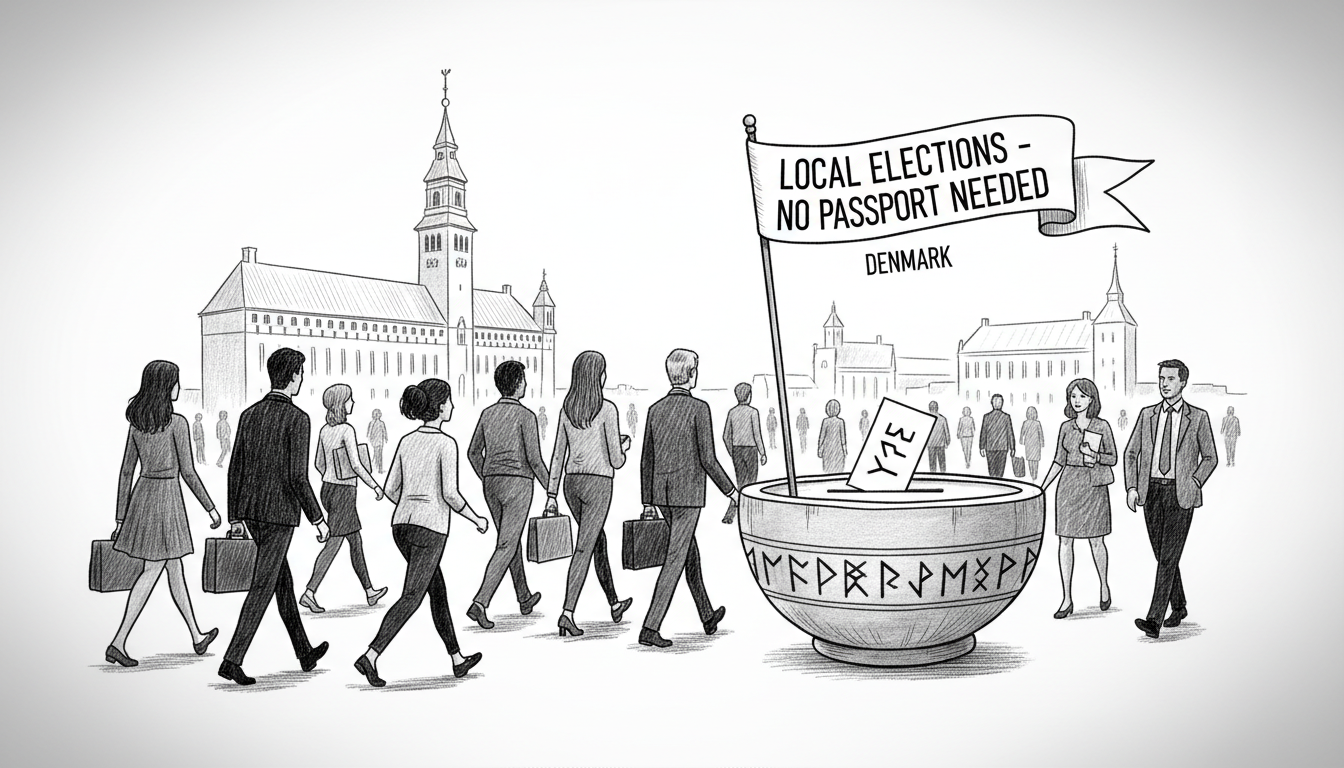Danish citizens do not need a passport to vote in municipal and regional elections. This differs from national parliamentary elections where Danish citizenship is mandatory.
Anyone aged 18 or older with permanent residence in a municipality can vote in local elections. Non-EU citizens from outside Iceland, Norway, or Britain must have lived in Denmark for four consecutive years first.
Foreigners with tolerated stay status cannot vote. Those expelled by final judgment or serving sentences from international courts also lack voting rights.
In the 2021 local elections, 414,966 foreign nationals in Denmark could vote. People with voting rights can generally run for office too.
But candidates lose eligibility if convicted of certain crimes. They cannot join municipal councils or regional boards during this period.
Loss of eligibility occurs with unconditional or conditional prison sentences. Placement in institutions or unconditional driver's license revocation also disqualifies candidates.
Eligibility returns three years after completing shorter sentences. For prison terms over six months, the waiting period extends to five years.
Getting on the ballot requires submitting a candidate list with at least one candidate. This applies unless the person won election last time.
Municipal candidate lists need signatures from 25 supporters in most areas. Aarhus, Odense, and Aalborg require 50 signatures. Copenhagen demands 150 supporters.
Regional elections have varying signature requirements across Denmark. Northern Jutland needs 100 supporters while Eastern Denmark requires 400.
This system makes Danish local politics more accessible than national elections. It reflects Denmark's approach to integrating long-term residents into community decision-making.
The rules balance inclusion with safeguards against criminal influence in local government.

